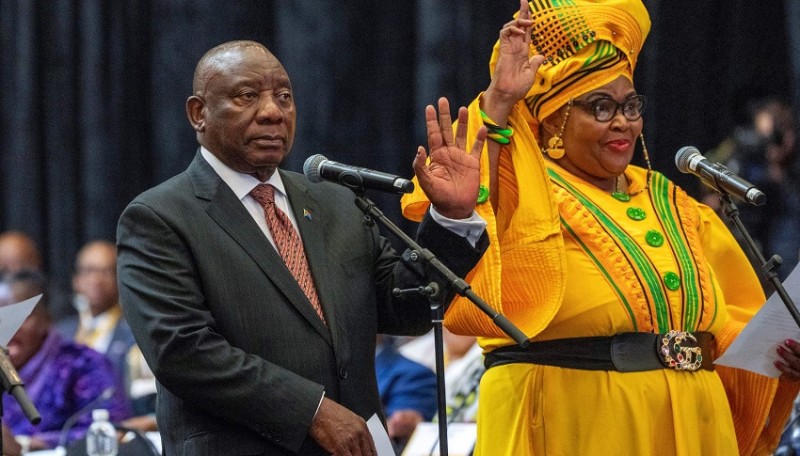
Cyril Ramaphosa has been re-elected as South Africa's president following a groundbreaking coalition agreement between the ruling African National Congress (ANC) and opposition parties. The new government of national unity includes Mr. Ramaphosa's ANC, the centre-right Democratic Alliance (DA), and smaller parties.
In his victory speech, President Ramaphosa praised the coalition, emphasizing that voters expect leaders to work together for the benefit of all South Africans. The agreement was reached after a day of intense political drama in the National Assembly, which sat late into the evening to confirm the new administration's leadership.
The coalition deal comes after weeks of speculation about who the ANC would partner with, as it lost its parliamentary majority for the first time in 30 years in last month's elections. The ANC secured 40% of the vote, while the DA came second with 22%.
ANC secretary-general Fikile Mbalula described the coalition as a "remarkable step" forward. This agreement allows President Ramaphosa, who replaced Jacob Zuma amidst a bitter power struggle in 2018, to retain power. The next crucial step is for President Ramaphosa to appoint cabinet members, including those from the DA.
The multi-party coalition excludes two breakaway ANC parties, which could benefit if the coalition fails to deliver the economic improvements demanded by voters. Despite this, opinion polls suggest that many South Africans hope for the success of this unprecedented grand coalition.
The ANC has historically polled above 50% since the country's first democratic elections in 1994, which saw Nelson Mandela elected as president. However, support for the ANC has declined significantly due to public anger over corruption, unemployment, and crime.
Addressing Parliament after his re-election, President Ramaphosa evoked the spirit of unity that defined the ANC's first presidential victory 30 years ago. "We have been here before, in 1994, when we sought to unite our country and effect reconciliation - and we are here now," he stated.
The alliance between the DA and the ANC is unprecedented, as the two parties have been rivals for decades. Under Nelson Mandela's leadership, the ANC led the struggle against apartheid and won the country's first democratic elections.
Critics of the DA accuse it of defending the economic privileges established by South Africa's white minority during apartheid, a charge the party denies.
John Steenhuisen, the leader of the DA, addressed lawmakers in Cape Town, calling the coalition a "historic day" for South Africa and the beginning of a new chapter.
Following the coalition agreement, Julius Malema, leader of the Economic Freedom Fighters (EFF), expressed acceptance of the election results but criticized the coalition as a "marriage of convenience" aimed at consolidating white economic power in South Africa.
The National Assembly also elected an ANC speaker and a DA deputy speaker, solidifying the cooperation between the parties in the legislature.
South Africa Faces Political Crossroads as Parliament Selects President Amid Uncertainty
South African Cabinet Minister Arrested Over Bribery Allegations: What's Next?